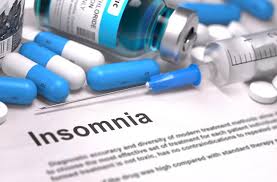- Home
- Editorial
- News
- Practice Guidelines
- Anesthesiology Guidelines
- Cancer Guidelines
- Cardiac Sciences Guidelines
- Critical Care Guidelines
- Dentistry Guidelines
- Dermatology Guidelines
- Diabetes and Endo Guidelines
- Diagnostics Guidelines
- ENT Guidelines
- Featured Practice Guidelines
- Gastroenterology Guidelines
- Geriatrics Guidelines
- Medicine Guidelines
- Nephrology Guidelines
- Neurosciences Guidelines
- Obs and Gynae Guidelines
- Ophthalmology Guidelines
- Orthopaedics Guidelines
- Paediatrics Guidelines
- Psychiatry Guidelines
- Pulmonology Guidelines
- Radiology Guidelines
- Surgery Guidelines
- Urology Guidelines
Insomnia linked to kidney dysfunction and early death : Americam Society of Nephrology

Insomnia may have detrimental effects on individuals' kidney health and their overall survival, according to a study that will be presented at ASN Kidney Week 2017 October 31-November 5 at the Ernest N. Morial Convention Center in New Orleans, LA.
Chronic insomnia is highly prevalent in the world, and the extent of its effects on the body are not fully known. A team led by Csaba Kovesdy, MD, and Jun Ling Lu, MD (University of Tennessee Health Science Center), looked to see whether chronic insomnia might be linked with increased risks of dying early and developing kidney problems in a group of 957,587 US veterans with normal kidney function.
Over a median follow-up of 6.1 years, 23.1% of patients died, 2.7% displayed rapid kidney function decline, and 0.2% developed kidney failure. Chronic insomnia was associated with a 1.4-times increased risk of dying, a 1.5-times increased risk of rapid loss of kidney function, and a 2.4-times increased risk of developing kidney failure.
"Chronic insomnia is an important and relatively common condition among patients with normal kidney function. Attention to its proper management could have long-ranging positive effects," said Dr. Kovesdy. "This hypothesis will need to be examined in dedicated prospective studies, including clinical trials."

Disclaimer: This site is primarily intended for healthcare professionals. Any content/information on this website does not replace the advice of medical and/or health professionals and should not be construed as medical/diagnostic advice/endorsement or prescription. Use of this site is subject to our terms of use, privacy policy, advertisement policy. © 2020 Minerva Medical Treatment Pvt Ltd